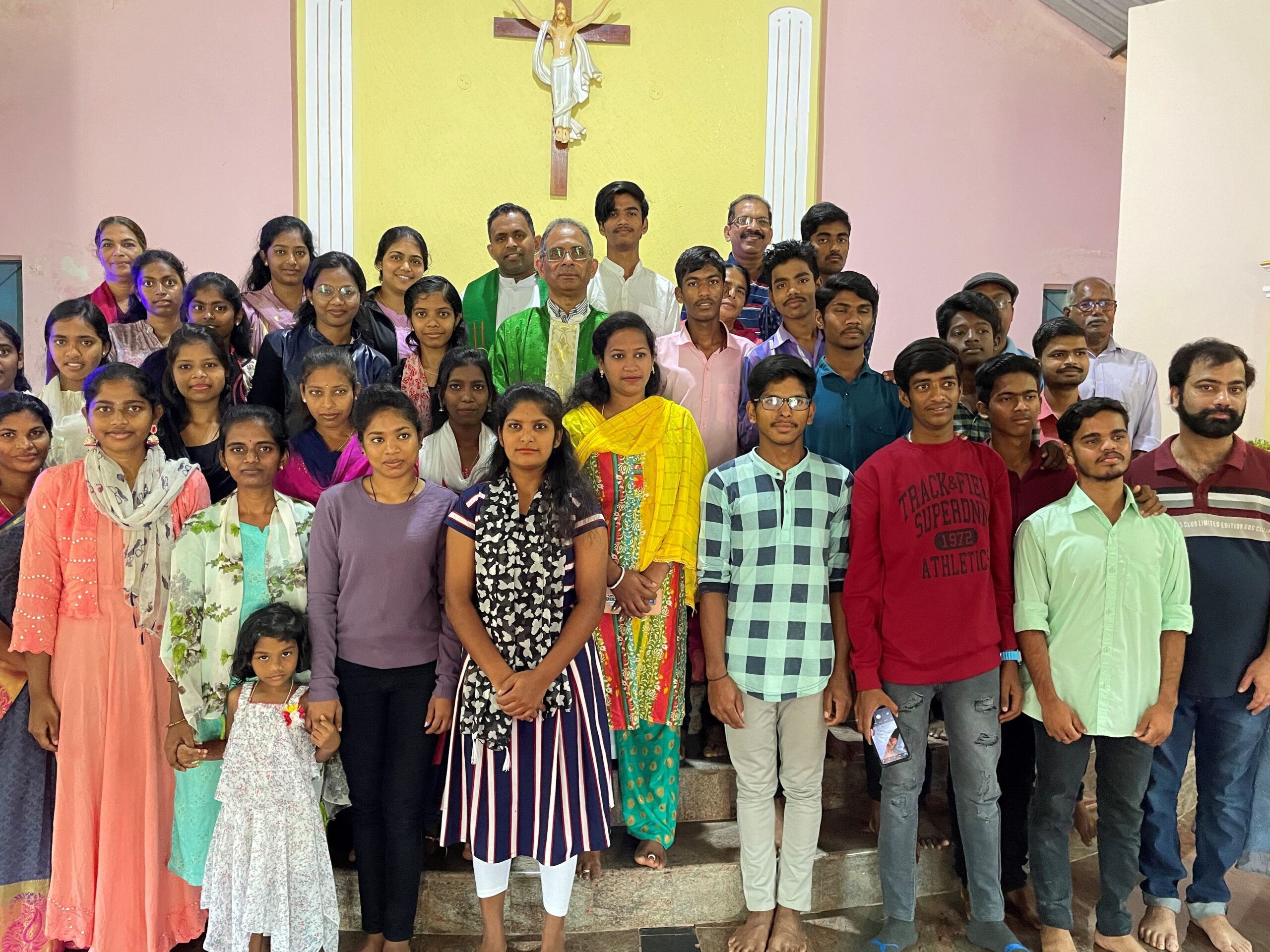
Fr. Matthew Perumpil, M.I., is shown after a Mass celebrated in Bangalore, India, as part of a reunion with about 120 children — many now adults — that he “parented” as the director of a home for orphans who carried the HIV virus. (Submitted photo)
The pastor of Mother of Perpetual Help Parish in West Allis enjoyed a one-of-a-kind reunion in Bangalore, India, last month with more than 100 adults and children he regards as his “children.”
The reunion drew about 120 of 145 children under the care of Fr. Matthew Perumpil, M.I., from 2008 to 2019 in a home he established with his order for HIV-positive orphans. Some even brought children of their own and Fr. Perumpil regards them as his “grandchildren.”
“We spent time sharing our stories, talking about the challenges they face as they live normally outside and how we need to maintain our extended family network to support one another,” he said of his December visit.
Fr. Perumpil’s special ministry started with just three children in Bangalore, India, in 2002.
At the time, the AIDS epidemic was gripping the country, affecting large numbers of families, especially poor women who were married, getting infected from their husbands and transmitting the virus to their children during childbirth and breastfeeding. There was no treatment available and most people in the early phase of the epidemic died.
“One of the first centers to care for the HIV infected in India was run by Camillians in Bangalore, and I was appointed as the director in 2002,” Fr. Perumpil recalled. “Most of what we could do in those days was to care for them and help them die with dignity.”
Fr. Perumpil, a priest from the Order of St. Camillus, was caring for a woman who was dying of HIV/AIDS when he faced an unusual problem.
The mother had no one to care for her three daughters, as she had no other family. The oldest was not infected, but the others were, and no one wanted to take in infected children then.
“No one was willing to take care of the infected children as they would pass on the virus to others. Their life span at that time was very short. So we first started a home for them and took care of them.”
Fr. Perumpil credits his natural call to fatherhood for his assurance to the woman that he would care for her daughters. He recalled not having a clue about child-rearing at first.
Many mothers died in the center and entrusted their children to him. He said he couldn’t have been a “dad” to 145 children without the assistance of volunteers.
“Then we got the help of some religious sisters to take care of the girls in particular. I had a great team of social workers, nurses and consulting doctors throughout the program,” he said. “I was their legal guardian, and the home and school was registered, even though we never called it an orphanage.”
“We started with 20 children, boys and girls, all between the ages of 4 to 10. Most of these children were orphans and were very sick, so our focus was health care and nutrition as they were severely malnourished. Slowly we built a program addressing all their needs including education.”
As successful treatment for children became available, Fr. Perumpil faced a new challenge — securing the future of these young ones, many of whom had no family. He came up with the idea of a residential school model providing comprehensive care and support to build their lives.
“In the second year, we admitted 40 more children and built a beautiful home and school for them. In four years, the number reached 100,” he recalled. In 2013, as the oldest of the children were becoming teenagers, Fr. Perumpil opened a second campus capable of accommodating 100 boys and 100 girls. The children continued their academics with vocational training and other life skills required to build their future.
“Now most of them are living and working outside. Some of them are married and have children. They are doing well with their health in general, even though they will have to be on treatment for HIV for life. Only 30 children under 18 are in our care now. Those who are living outside are connected through a networking and supportive program.”
After coming to the United States in September 2019 for a short sabbatical from the program, Fr. Perumpil planned to return to India, but ended up working at the St. Camillus Community Residence in Wauwatosa, for the care of the seniors and later, beginning in 2021, at Mother of Perpetual Help Parish.
Fr. Perumpil remains a distant father figure. “Being far away, the only way I can be in touch with them is through phone calls. We agreed to be family for each other and strengthen the bond through sharing whenever we can,” he said.
